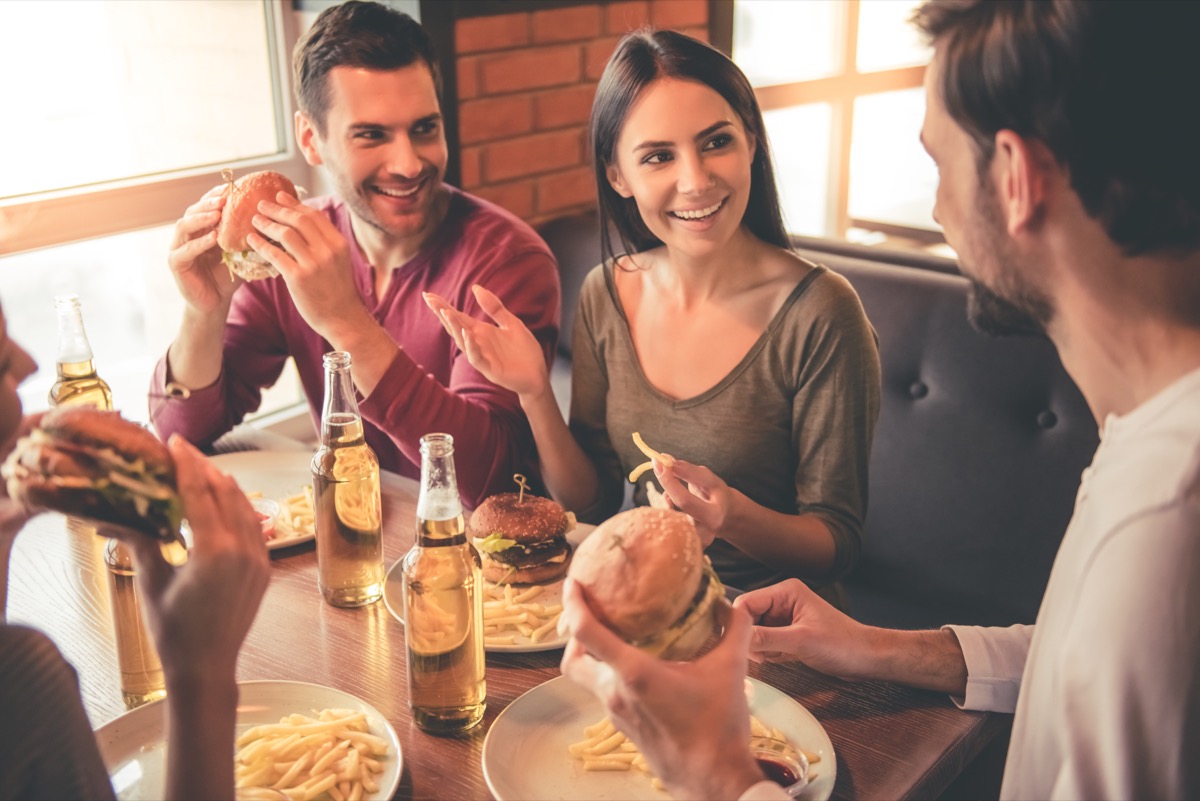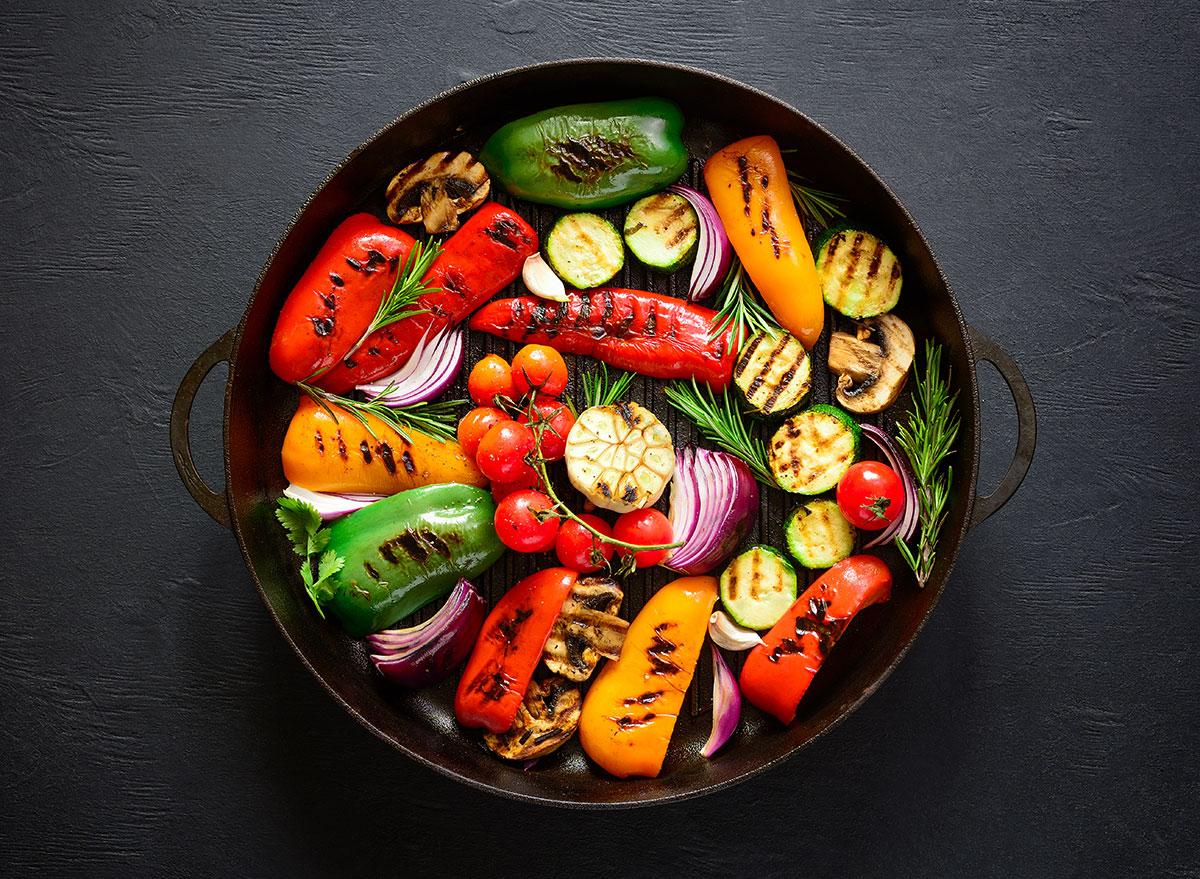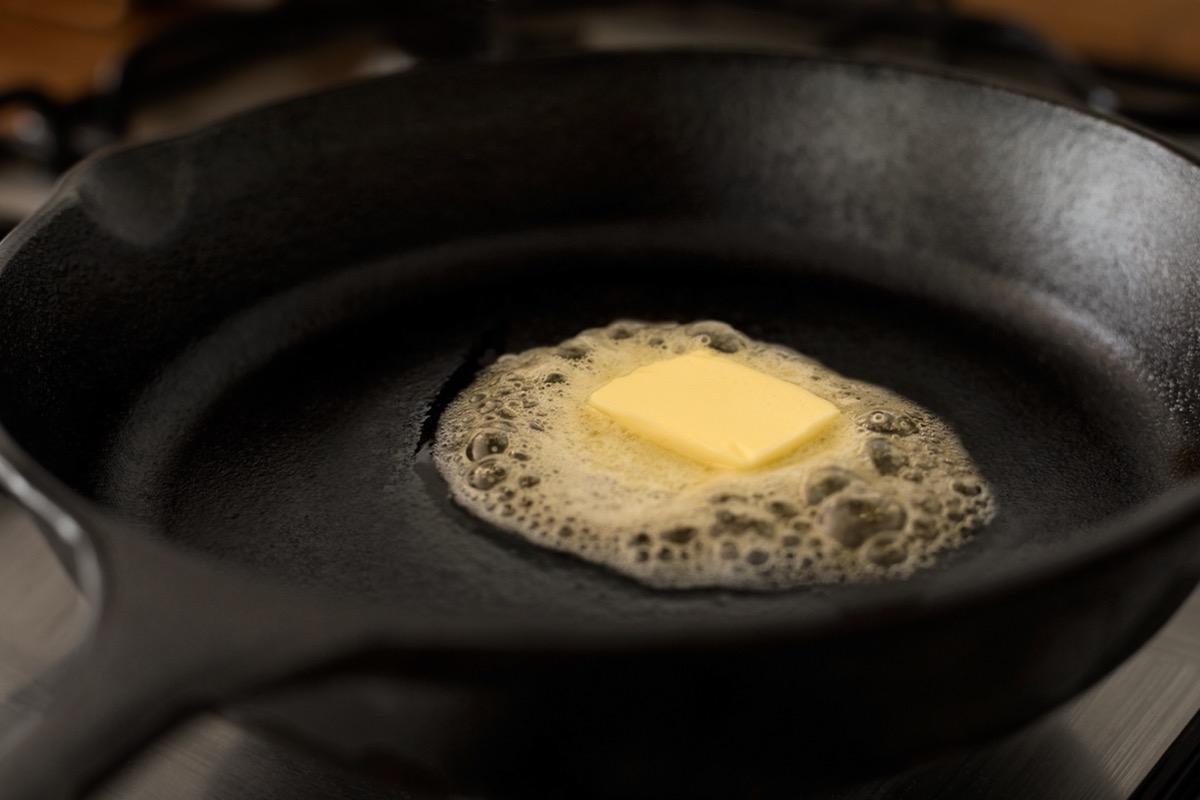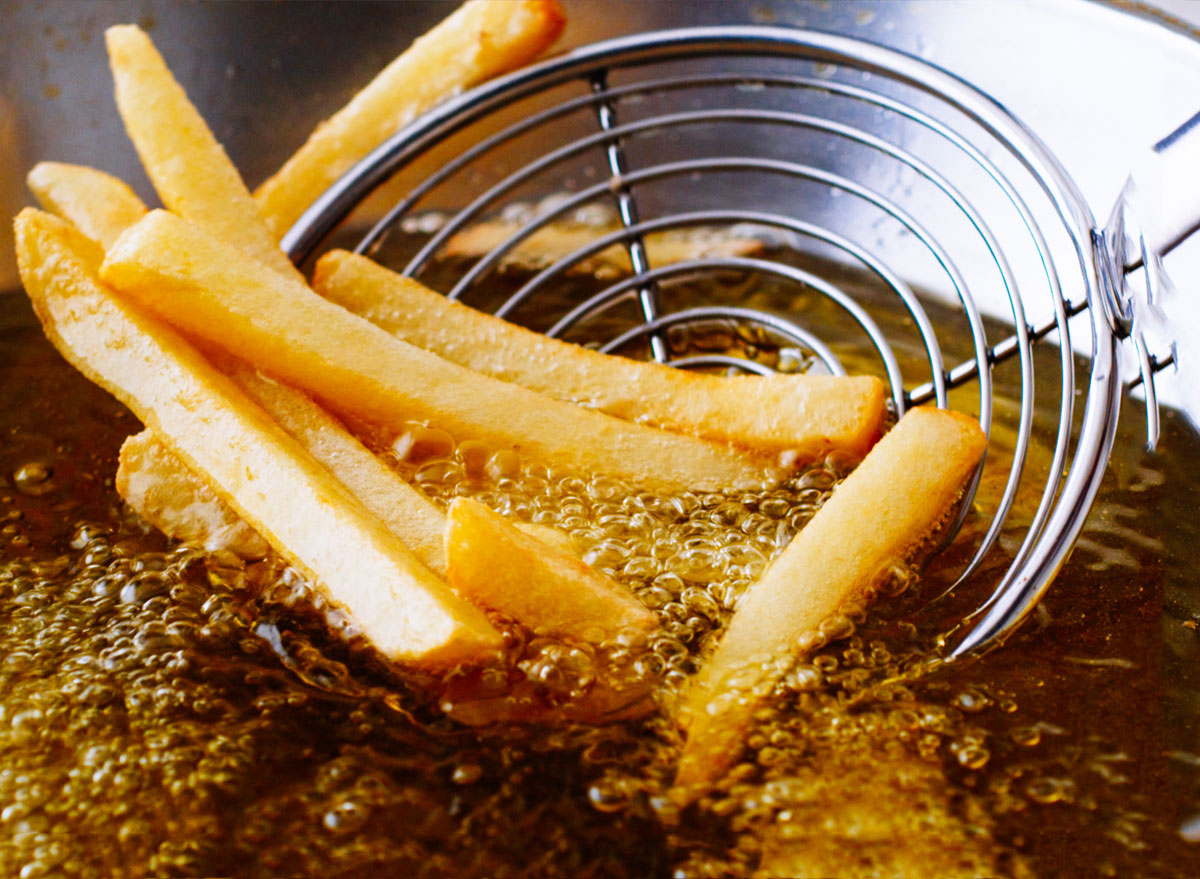Eating Habits to Avoid if You Don’t Want High Cholesterol, Say Dietitians

High cholesterol is a major risk factor for heart disease, the most common cause of death in the U.S., and stroke, the fourth leading cause of death in the nation among adults. Unfortunately, approximately 93 million U.S. adults have high cholesterol, according to the Centers for Disease Control and Prevention (CDC).
The scariest part about high cholesterol is that it has no symptoms, so many people don’t know their cholesterol is too high without a blood test. For this reason, it’s of the utmost importance to take preventative measures to protect yourself from developing this health condition.
It’s not just a genetic predisposition to high cholesterol that can put you at risk—your eating habits can have a major impact on your cholesterol levels—for both the better and the worse. With the help of registered dietitians, we rounded up the eating habits you need to stop now if you want to keep your cholesterol levels in a healthy range and protect your cardiovascular and brain health in the long run. For more ways to improve your diet in no time, check out The 7 Healthiest Foods to Eat Right Now.
You don’t eat enough fiber.

If your diet is low in high-fiber foods, you could be setting yourself up for high cholesterol down the line.
“Fiber found in plant-based foods such as whole grains, fruit, vegetables, nuts, seeds and legumes is associated with a reduction of LDL cholesterol, which is considered bad cholesterol because it tends to promote inflammation and plaque buildup in the arteries,” says Diana Gariglio-Clelland, RD, staff dietitian to Next Luxury. “Soluble fiber found in foods like oats, apples, flaxseed, and legumes is especially beneficial for lowering cholesterol.”
You eat a diet high in refined carbs.

Whether you’re a regular soda drinker or have a hankering for white bread, eating refined carbohydrates can play a major role in sending your cholesterol levels into dangerous territory.
“Studies have found that when saturated fats are replaced with refined carbs such as sugar, cholesterol ratios tend to worsen, meaning good cholesterol goes down and bad cholesterol goes up,” Gariglio-Clelland says.
You eat a diet high in animal products.

Low-carb, high-fat diets may be popular right now, but in the long run, this way of eating may have some unfavorable side effects when it comes to your cholesterol.
“If a keto diet is poorly planned or if you are hungry as a result of lower carbohydrate intake, you could consume too much fat. If that fat is saturated, your risk of acquiring cardiovascular disease increases,” says Christine Randazzo Kirschner, MS, RDN, co-founder of Amenta Nutrition.
Want to get your cholesterol into healthier territory? Start with these 17 Foods That Lower Cholesterol.
You cook your meals in butter.

Whether you’re using it to add flavor to your favorite veggies or tossing some in the pan when you sear your steak, if butter is your cooking fat of choice, you could be on the path to unhealthy cholesterol levels, Randazzo Kirschner says.
Instead, she recommends “using plant-based oils to cook like extra virgin olive oil, avocado oil, or safflower oil, [which] can significantly reduce total and LDL cholesterol.”
You consume a trans-fat-heavy diet.

Though food manufacturers were required to remove trans fats from their recipes, these unhealthy, syntheic fats are still used in some restaurants to deep fry foods—and eating them could send your cholesterol skyrocketing. (For examples, see these 30 Sneaky Restaurant Foods With the Most Trans Fat.)
“Trans fats are found in ‘partially hydrogenated oils,’” Kimberly Marsh, MS, RD says. “Eating a large amount of trans fat each day can increase your LDL, or ‘bad’ cholesterol.”
For more ways to reduce your cardiovascular risk factors, cut out these 50 Foods That Can Cause Heart Disease.